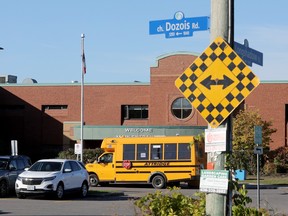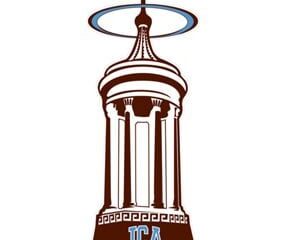Education
Teachers Face Discipline Following Controversial Social Media Posts

The community at St. Mark High School in Manotick is grappling with heightened tensions after the Ottawa Catholic School Board responded to threats linked to a staff member’s social media activity. This incident emerged following posts made about the death of right-wing commentator Charlie Kirk, who was fatally shot while speaking at an event on April 10, 2023.
The posts, attributed to a teacher, described Kirk as a “hateful, evil man” and expressed no sorrow over his death. In one statement, the teacher characterized Kirk’s rhetoric as “racist, transphobic and antifeminist,” asserting, “I feel no sorrow at all. I don’t have to and that doesn’t make me a bad person.” These comments quickly circulated online, prompting an anonymous Facebook post that identified the teacher and the school, warning parents about the implications of having such a teacher in the classroom.
Calls for disciplinary action against the teacher surged, with some messages urging the school board to terminate the educator’s employment. Such reactions reflect a growing trend, as media outlets across the United States have reported numerous suspensions and dismissals of educators expressing similar sentiments regarding Kirk’s death.
On a recent episode of the Charlie Kirk Show, U.S. Vice-President J.D. Vance echoed these concerns, stating that individuals celebrating Kirk’s killing should be held accountable. “Call them out, and hell, call their employer,” Vance declared. “We don’t believe in political violence, but we do believe in civility.”
The impact of social media on professional conduct is increasingly scrutinized, with employers, including school boards, taking action against employees for their online statements. According to James Turk, director of the Centre for Free Expression at Toronto Metropolitan University, the ability for individuals to publicly share their views has shifted the landscape of accountability. “We are operating in ways that are visible that were never visible before,” he noted.
Disciplinary measures against teachers for social media conduct are not uncommon. The Ontario College of Teachers can impose various sanctions based on a teacher’s online behavior, although specific details often remain confidential until a hearing occurs. For example, in June 2017, the Durham District School Board suspended teacher Lucas Thad MacDonald for comments made on Twitter that were deemed racially and homophobically charged. He was ultimately suspended for ten days and required to undergo sensitivity training.
In another notable case, teacher Nadia Shoufani faced scrutiny for her remarks at a pro-Palestinian rally in 2016. Although the Dufferin-Peel Catholic District School Board initiated an investigation, she was not disciplined. The reasons behind this decision were not publicly disclosed.
The Ontario College of Teachers has historically recognized the balance between freedom of speech and a teacher’s responsibility. In a 2007 ruling involving Paul Fromm, a teacher known for controversial statements about multiculturalism, the college upheld the principle of free speech but also emphasized the limits of what teachers can express while maintaining their professional roles.
In a 2017 advisory, the college reiterated that teachers’ off-duty conduct could affect their professional standing. “Even the most innocent actions can be easily misconstrued or manipulated,” the advisory stated, highlighting the potential consequences of casual interactions on social media.
The implications of these policies become increasingly significant in a polarized environment. Turk expressed concern that school boards might bow to public pressure and stifle teachers’ freedom of expression. He underscored that while teachers have the same rights as any citizen, there are exceptions regarding hate speech or incitement to violence.
In the case of the St. Mark teacher, Turk pointed out that her comments did not advocate violence. “She was troubled by what he said and she was not sorry he was gone,” he explained. He criticized the investigation into Shoufani’s remarks, arguing it should not have proceeded given her constitutional rights to free speech.
Ultimately, the ongoing discourse surrounding teachers’ social media conduct raises significant questions about the balance between personal expression and professional accountability in educational environments. The Ottawa Catholic School Board maintains policies that permit disciplinary actions if social media activity disrupts the school environment or hinders a teacher’s ability to perform their duties.
As the community at St. Mark High School navigates this complex situation, the broader implications of teachers’ online expressions continue to resonate across educational institutions in Canada and beyond.
-

 World4 months ago
World4 months agoScientists Unearth Ancient Antarctic Ice to Unlock Climate Secrets
-

 Entertainment4 months ago
Entertainment4 months agoTrump and McCormick to Announce $70 Billion Energy Investments
-

 Lifestyle4 months ago
Lifestyle4 months agoTransLink Launches Food Truck Program to Boost Revenue in Vancouver
-

 Science4 months ago
Science4 months agoFour Astronauts Return to Earth After International Space Station Mission
-

 Technology2 months ago
Technology2 months agoApple Notes Enhances Functionality with Markdown Support in macOS 26
-

 Top Stories3 weeks ago
Top Stories3 weeks agoUrgent Update: Fatal Crash on Highway 99 Claims Life of Pitt Meadows Man
-

 Sports4 months ago
Sports4 months agoSearch Underway for Missing Hunter Amid Hokkaido Bear Emergency
-

 Politics3 months ago
Politics3 months agoUkrainian Tennis Star Elina Svitolina Faces Death Threats Online
-

 Politics4 months ago
Politics4 months agoCarney Engages First Nations Leaders at Development Law Summit
-

 Technology4 months ago
Technology4 months agoFrosthaven Launches Early Access on July 31, 2025
-

 Top Stories1 week ago
Top Stories1 week agoFamily Remembers Beverley Rowbotham 25 Years After Murder
-

 Entertainment4 months ago
Entertainment4 months agoCalgary Theatre Troupe Revives Magic at Winnipeg Fringe Festival




















